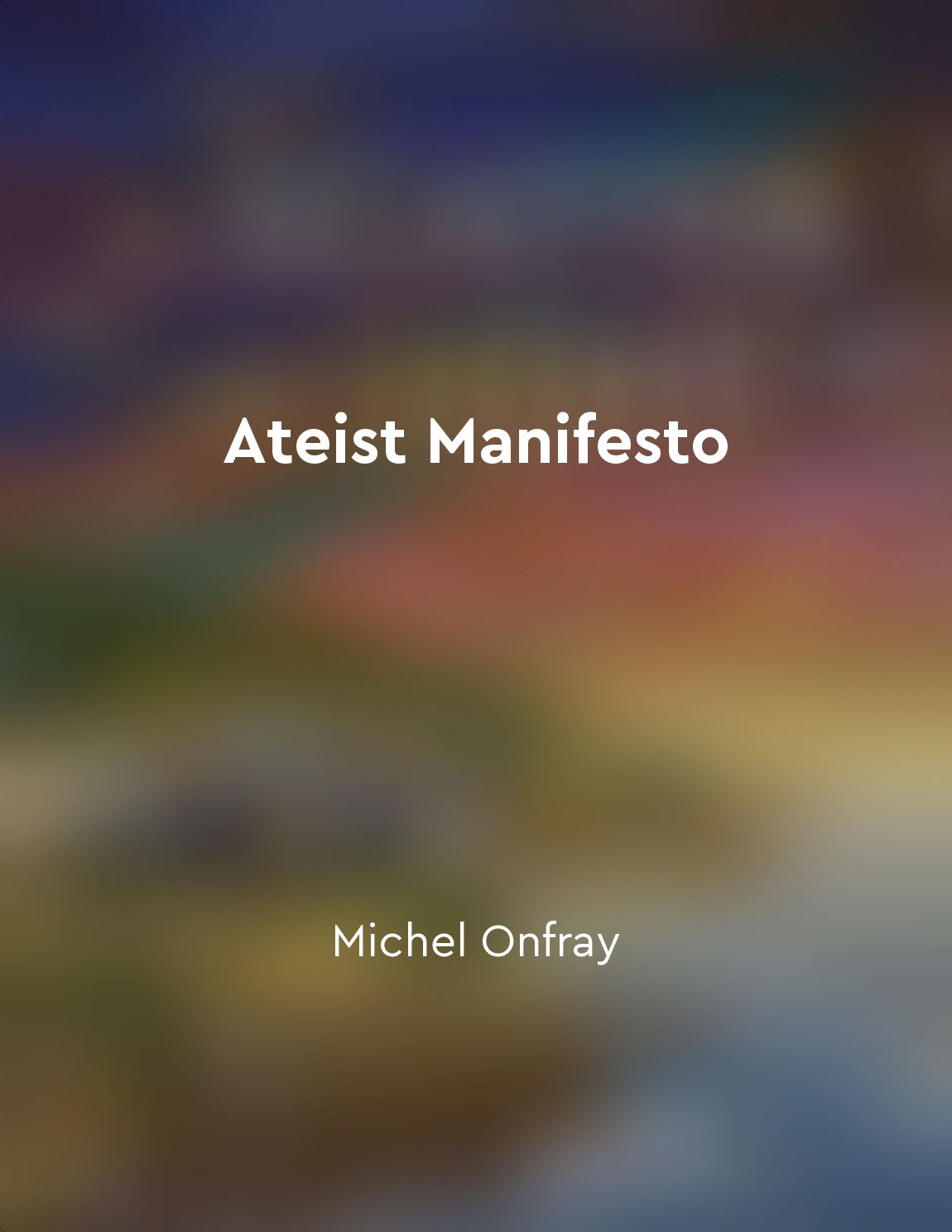Skepticism is necessary for intellectual honesty from "summary" of An Enquiry Concerning Human Understanding by David Hume
In examining the nature of human understanding, it becomes apparent that skepticism plays a crucial role in maintaining intellectual honesty. By questioning our beliefs and assumptions, we are able to avoid dogmatism and instead engage in a more critical and open-minded inquiry into the world around us. Skepticism encourages us to scrutinize our ideas and theories, acknowledging the limitations of our own knowledge and the fallibility of our reasoning. When we approach our beliefs with skepticism, we are less likely to be swayed by emotional or personal biases. Instead, we are able to subject our ideas to careful scrutiny and evaluation, considering alternative perspectives and potential objections. This process of questioning and doubting allows us to arrive at more well-founded and reliable conclusions, based on evidence and reason rather than mere speculation or wishful thinking. Intellectual honesty requires us to be willing to admit when we are uncertain or mistaken, to revise our beliefs in the face of new evidence, and to remain open to the possibility of being wrong. Skepticism helps us cultivate these virtues by encouraging us to be vigilant in our pursuit of truth, even if it means challenging deeply-held convictions or popular opinions. By embracing skepticism, we are able to engage in a more rigorous and disciplined form of inquiry, one that is guided by a commitment to intellectual humility and integrity. Rather than clinging to preconceived notions or succumbing to the pressures of conformity, we are free to explore the complexities and ambiguities of the world with an open and inquisitive mind. In this way, skepticism serves as a valuable tool for achieving intellectual honesty, helping us navigate the complexities of human understanding with clarity, rigor, and integrity. It is through the challenging of our assumptions and the questioning of our beliefs that we are able to cultivate a more nuanced and sophisticated understanding of the world, one that is grounded in reason, evidence, and critical reflection.Similar Posts

Atheists value critical thinking over blind obedience
The atheist does not bow down before any god, any authority, any law, any tradition. He is a free spirit, unshackled by the cha...
The search for truth is a noble pursuit
The pursuit of truth, a fundamental longing that has driven mankind throughout the ages, is a noble endeavor that transcends me...
Satirical critique of societal norms
The concept of satirical critique of societal norms is a fundamental aspect of critical thinking. Through satire, writers can u...
Cosmology
Cosmology is the scientific study of the origin, evolution, and eventual fate of the universe. It involves asking questions abo...
Seek multiple perspectives and viewpoints
To think is to consider multiple perspectives and viewpoints. It is not enough to simply rely on our own opinions and beliefs w...
Reason alone cannot establish truths about the world
Reason, as it is understood by many, is the faculty that allows us to discern truths about the world. It is often seen as the t...
Use principles to achieve your goals
To achieve your goals, you need to have a clear understanding of what they are and a plan to reach them. This is where principl...

The value of individuality and creativity cannot be overstated
The significance of individuality and creativity is paramount, for they are the very essence of human existence. Each individua...
The free market promotes individual freedom and economic growth
The idea that the free market promotes individual freedom and economic growth is a central tenet of classical liberal thought. ...
